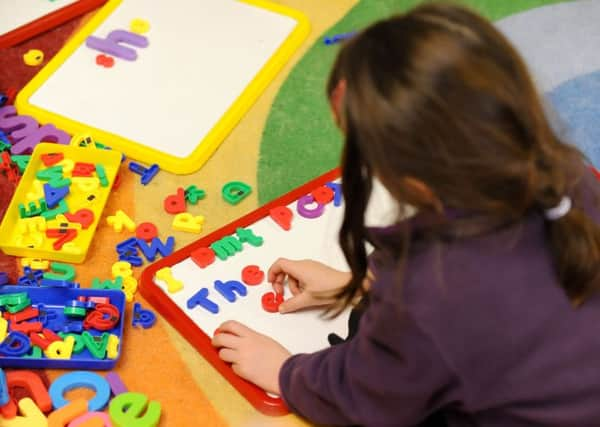Review into Scots pupils with extra needs going into mainstream schools


A motion calling for the system of “mainstreaming” pupils with additional support needs (ASN) to be re-examined was passed unanimously by MSPs at Holyrood last night.
The review was proposed by the Scottish Conservatives but also won the support of the Scottish Government, with Education Secretary John Swinney admitting that the system was not perfect.
Advertisement
Hide AdAdvertisement
Hide AdSince 2002 it has been a legal requirement in Scotland for all pupils to be taught in a mainstream school unless certain exemptions apply, such as if this would be beyond their ability or aptitude.
Statistics published last month showed that 199,065 pupils – more than a quarter of the total number – were recorded as having additional support needs, an increase of 2 per cent in a year.
These include those needing extra help due to their family circumstances, health or a disability. In recent years their numbers have been rising, while the number of specialist ASN teachers has fallen.
During a debate in the Scottish Parliament, MSPs from all parties praised the intentions of the system, which is supposed to ensure that children do not feel left out or excluded from schools.
But some claimed that the system was putting an extra burden on already overstretched teachers and in some cases actively hindered the education of the children it was supposed to help.
Tory MSP Jeremy Balfour said he had received a letter from a parent with a child in P5 who recently requested that her son was taken out of the mainstream school he was attending.
“He spends 90 per cent of his time out of the classroom working independently with an adult,” he said. “He doesn’t have any friends, he is lonely, isolated and hates going to school. Can I suggest... that this is a time when mainstreaming has gone too far – when we’re not looking at every child, looking at his or her needs.”
“If people are being excluded from the classroom, if even worse they are standing alone in the playground every break time, then they are missing out.”
Advertisement
Hide AdAdvertisement
Hide AdMr Balfour also said that some ASN pupils could be disruptive, claiming he had spoken to teachers who felt like “more like policemen” due to a daily struggle to control classes.
Labour’s Johann Lamont said she supported the mainstreaming policy, but criticised ministers for failing to offer enough support to teachers and monitor how it was affecting pupils.
Larry Flanagan, the general secretary of the EIS, said the levels of ASN provision in schools was “one of the top concerns” raised by classroom staff.
“Teachers want to provide the best possible educational experience for all young people, but years of austerity cuts to ASN resources and staffing have left schools struggling to meet the specialist requirements of pupils,” he said.
